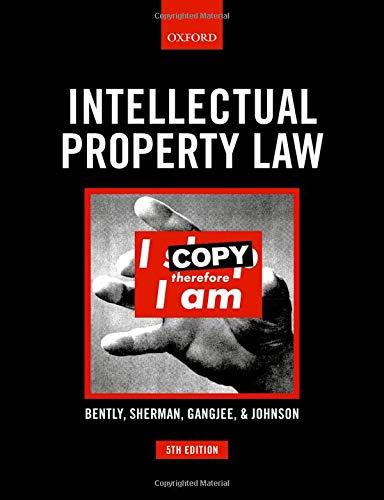Question
Question 56 (1 point) The federal government has the exclusive right to regulate all _____ of the United States. Question 56 options: intrastate commerce domestic
Question 56 (1 point)
The federal government has the exclusive right to regulate all _____ of the United States.
Question 56 options:
| intrastate commerce | |
| domestic commerce | |
| private and government actions | |
| foreign commerce |
Question 57 (1 point)
The "dormant" Commerce Clause limits the authority of the states to interfere with the flow of interstate commerce by:
Question 57 options:
| limiting the states from furthering only state interests. | |
| limiting a state's ability to tax vendors. | |
| prohibiting state legislation that unduly burdens intrastate commerce. | |
| prohibiting state laws that openly discriminate against interstate commerce. |
Question 58 (1 point)
The Takings Clause must have a taking:
Question 58 options:
| for a compelling private purpose. | |
| for a public purpose and the private property owner is entitled to just compensation. | |
| that is justified by the supremacy clause while compensation is rarely required. | |
| that prohibits private property owners from securing just compensation. |
Question 59 (1 point)
In the case of a taking, just compensation includes the:
Question 59 options:
| fair market value of the property plus its sentimental value. | |
| current fair market value plus any expected future value from the taking. | |
| current fair market value of the property involved in the taking. | |
| fair market value of the property if it were to be sold to a developer. |
Question 60 (1 point)
The _____ protects people from arbitrary government interference with their life, liberty, or property rights.
Question 60 options:
| procedural due process | |
| substantive due process | |
| equal protection clause of the fifteenth amendment | |
| due process clause of the sixth amendment |
Question 61 (1 point)
The states are prohibited from arbitrarily discriminating against persons by the _____ Clause of the _____ Amendment.
Question 61 options:
| Equal Protection; Fourteenth | |
| Equal Protection; Fifth | |
| Due Process; Fourteenth | |
| Due Process; Fifth |
Question 62 (1 point)
If the governmental action has a reasonable relationship to the achievement of a legitimate purpose, it is declared constitutional under:
Question 62 options:
| strict scrutiny analysis. | |
| intermediate scrutiny analysis. | |
| rational basis analysis. | |
| suspect classifications. |
Question 63 (1 point)
Under rational basis analysis, _____.
Question 63 options:
| a government action will be upheld as long as it has a reasonable relationship to the achievement of a legitimate purpose, even if those provisions are foolish | |
| discrimination on the basis of a suspect category will receive highest scrutiny and misdirected provisions are generally invalid if they are subject only to rational basis review | |
| courts will deem a government action unconstitutional when the action impinges on a fundamental right | |
| discrimination on the basis of economic interest will receive highest scrutiny |
Question 64 (1 point)
Under strict scrutiny analysis, to demonstrate that a government action is constitutional, the government must demonstrate that:
Question 64 options:
| its action bears a rational relationship to its desired end. | |
| it is pursuing a compelling government interest. | |
| it is pursuing a governmental end in the most intrusive manner. | |
| there is no restriction on commercial speech. |
Question 65 (1 point)
Mr. Gregg has made an inflammatory speech denouncing the action of the government in the recent war. In this scenario, the court will uphold the governmental restrictions on his speech only:
Question 65 options:
| under the Fifth Amendment. | |
| if the regulation is the least intrusive means to promote a compelling governmental interest. | |
| if it is commercial speech, which will then receive protection under the Fifth Amendment. | |
| under the Fourteenth Amendment. |
Question 66 (1 point)
Under the First Amendment, commercial speech is:
Question 66 options:
| subject to intermediate scrutiny unlike political speech. | |
| completely suppressed regardless of it being misleading or truthful. | |
| subject to strict scrutiny just like political speech. | |
| completely unregulated unless it is put in writing. |
Step by Step Solution
There are 3 Steps involved in it
Step: 1

Get Instant Access to Expert-Tailored Solutions
See step-by-step solutions with expert insights and AI powered tools for academic success
Step: 2

Step: 3

Ace Your Homework with AI
Get the answers you need in no time with our AI-driven, step-by-step assistance
Get Started


